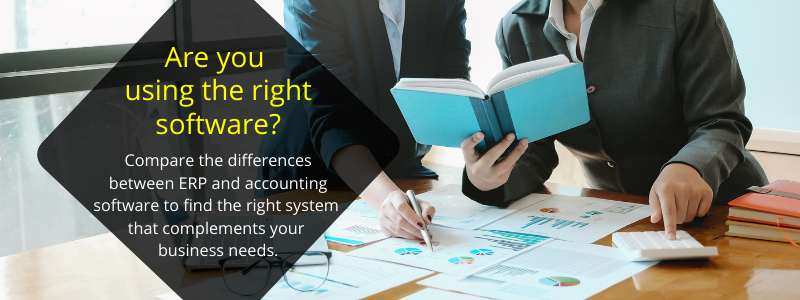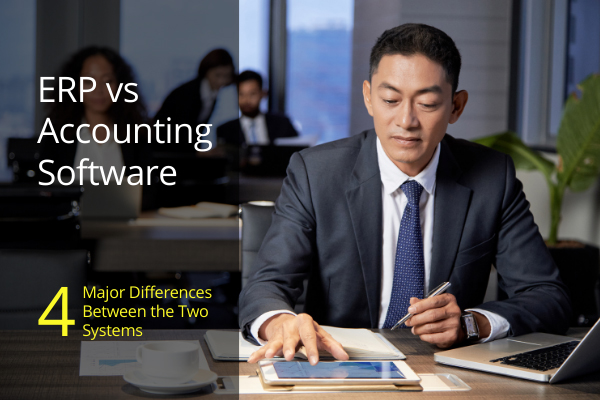What is ERP Software?
ERP software is a fully integrated suite of applications designed to consolidate organizational data and automate all business operations. The modular structure ties together front and back-office functions of your organization to help you predict demand and manage day-to-day business activities with ease, irrespective of the nature of business.
What is Accounting Software?
Unlike ERP, accounting software handles only financial transactions. It generally includes functions that tend to be owned majorly by the finance department. The system monitors revenue, records sales, tracks invoices, financial reporting, and manages other aspects of day-to-day accounting operation.
The accounting software also provides a wide snapshot of your company’s financial health to improve information visibility and profitability of your organization.
ERP vs Accounting Software: A Brief Comparison
With the world growing more complex each passing day, running a smooth business is getting difficult. Constantly changing customer expectations, personalization of services, and more data to manage than ever before, are challenging for every organization and need essential software support to continue operating core business processes efficiently.
Both ERP and accounting solutions are used by businesses from all verticals. However, there are significant differences between them.

An ERP system integrates every operation in the organization. It controls all business functions, from procurement and delivery to human resource and customer relationship management. Data collected from different departments are efficiently stored in a centralized database and shared as needed for making informed business decisions. Accounting is a crucial module of the ERP system, but not the sole focus of the software.
Accounting software, on the contrary, is specially designed for the finance team of any organization. It includes tools that are relevant to the department and helps users gain efficiency in the bookkeeping, sales, and invoice management. The system enables businesses to gain better visibility into financial transactions while meeting the unique accounting requirements.
4 Difference Between ERP and Accounting Software
People sometimes use the terms accounting software and ERP system interchangeably. But in reality, the accounting system is generally a subset or a module included in an ERP solution.
Here are the core differences between ERP and accounting software. Let’s take a closer look at them:
Scope of use
The first significant difference between the two systems is their scope. An ERP system focuses on the border range of business operations, while accounting software concentrates only on the factors related to financial transactions.
Standalone accounting software can only manage inflows and outflows of cash and generate reports of the fiscal year. However, it is unable to connect with other processes of your company. On the other hand, ERP solution with an accounting module handles cash flows and enables users to get a real-time view of market trends.
Broader view of your business
An ERP system integrates all your business operations on a single platform. It records data in a unified database, accessing which you can get a 360 view of how each of your business operations are performing.
A dedicated accounting solution just tells about the financial performance of the business through basic reporting that is often not real-time..
The system includes an alert mechanism that allows us to quickly locate and address problems so that you are able to minimize delivery delays to the end-users.
Meeting business-specific needs
SYour business software needs to have specific features to serve the dynamic requirements of your company.
Accounting and financial management software are usually one-size-fits-all systems with limited scope to address the specific needs of any particular industry. In contrast, the ERP system is tailored with industry-specific features and allows further customization to provide an end-to-end solution to your business needs.
Budgeting - Forecasting
Another major difference between ERP and accounting software is that the ERP system is able to interpret the market trends, recognize the shortcomings, and improvise business workflows. This is not fulfilled by an accounting system.
Which One is Right for You?
To choose the right software, it is essential to understand the difference between them and select the one that best suits your organization.
Fill in the form to get in touch with our software experts to get complete guidance.








